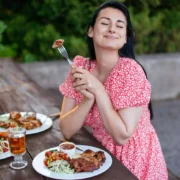SoulCycle Founders Julie Rice and Elizabeth Cutler on Their Next Venture: Peoplehood, A Workout for Your Relationships
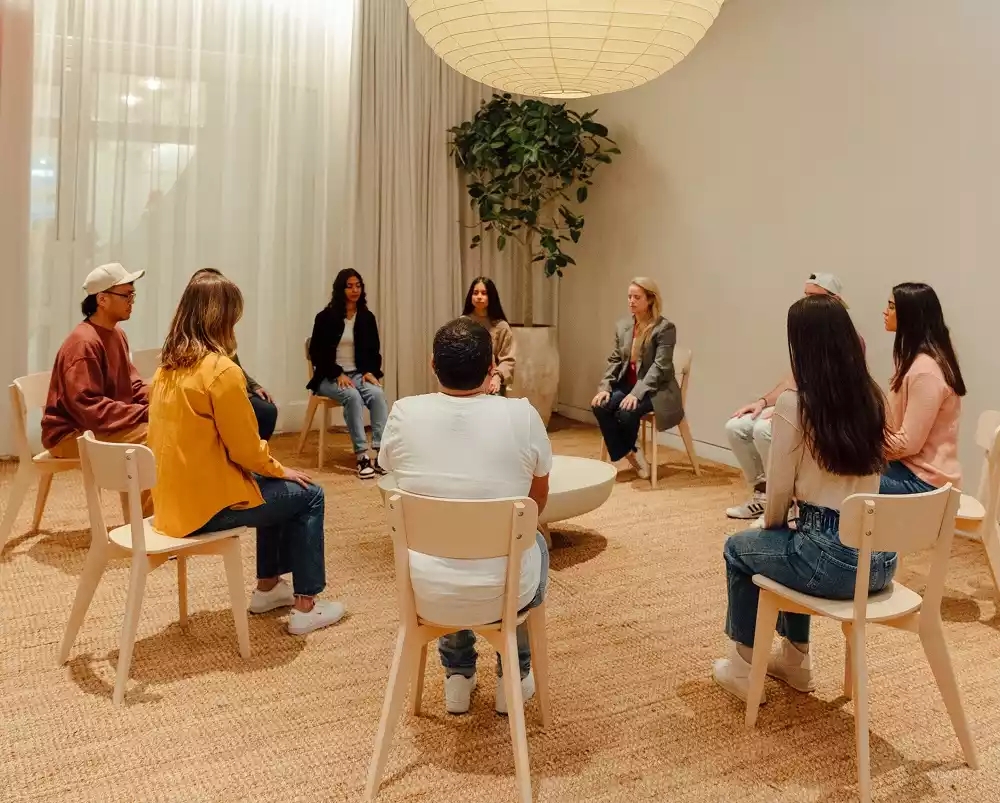
For their second act, SoulCycle Founders Julie Rice and Elizabeth Cutler found Peoplehood, a guided group conversation practice designed to improve your relationships
Two of the most influential women in the world of health and wellness, Julie Rice and Elizabeth Cutler are no strangers to entrepreneurship. After founding SoulCycle in 2006, Rice and Cutler sold the company to Equinox ten years later for $90 million. Now, they’re launching their second venture: Peoplehood, a “workout” for your relationships.
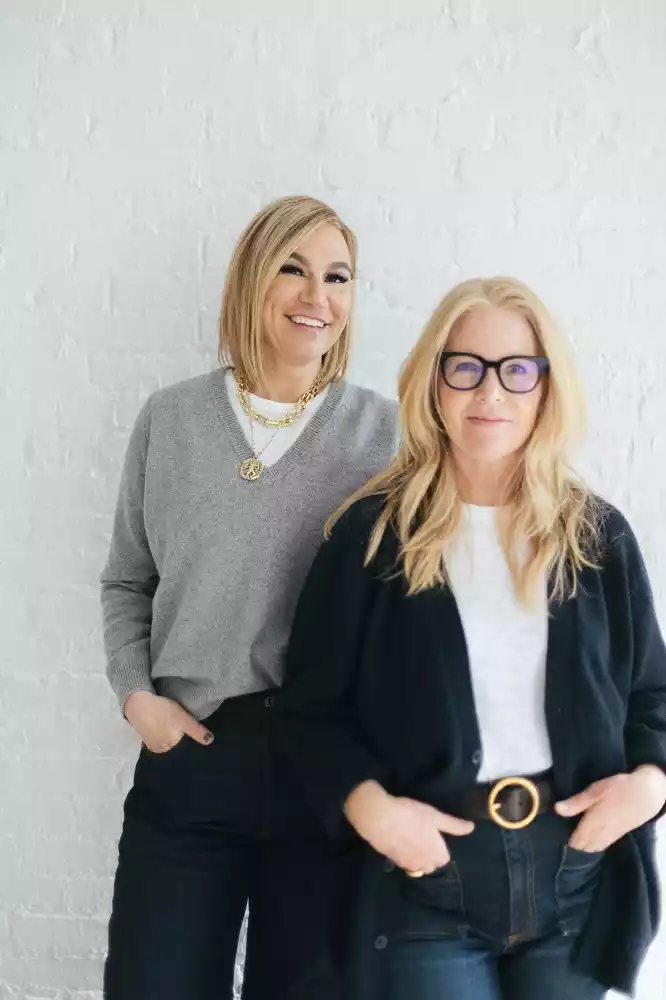
Rice and Cutler were inspired to create Peoplehood when they looked at what people found in SoulCycle’s communities and studios: strong interpersonal connections. They spent over three years researching and looking at existing research, particularly during the pandemic. Existing research like the Harvard study that came out after 85 years of study confirmed that a key health indicator is the connection and relationships in one’s life.
Peoplehood describes itself as a guided group conversation practice designed to improve relationships. The practice offers two options: Peoplehood, for individuals, and Couplehood, for couples. Peoplehood also offers “Gather” sessions in person at its flagship location in NYC, and virtually on its digital platform.
When the duo left SoulCycle, they wanted to dive deep into the science and behaviors surrounding connection, one of the key benefits of SoulCycle, and expand that concept beyond physical fitness into a platform for social and relationship fitness.
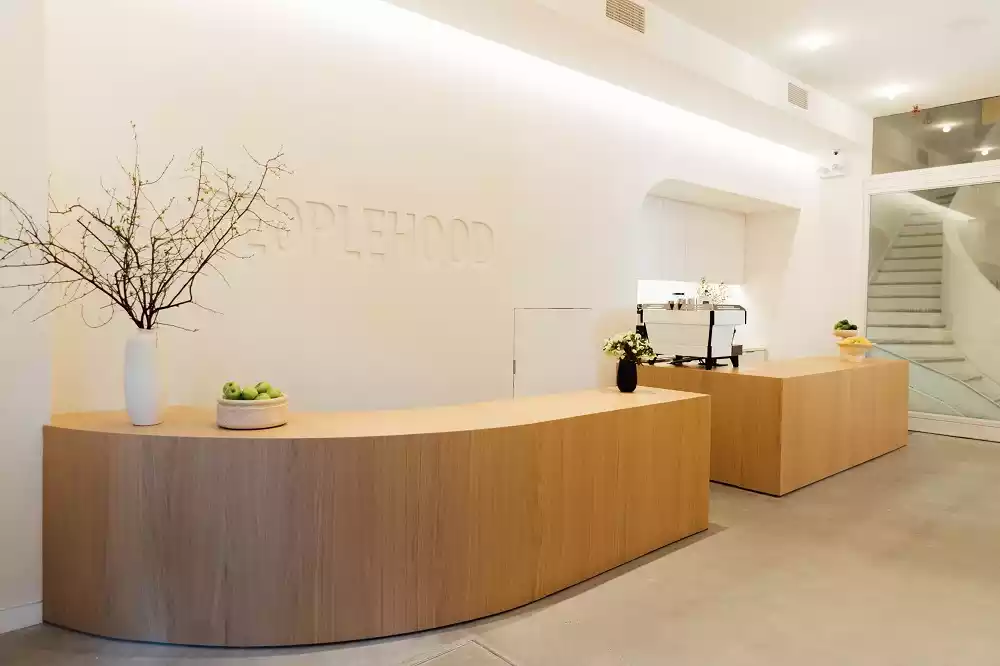
Before talking to Rice and Cutler about their new concept, I decided to try Peoplehood myself. I wasn’t sure what to expect. Its flagship location had a calming ambience and white design aesthetic reminiscent of a SoulCycle studio. Peoplehood employees encouraged participants (there were 8 in my Gather) to place our belongings in lockers to minimize in-room distractions. When the Gather began, our “Guide,” or group leader, led the group in music and beat-based breathwork and heel taps. After the warmup, our Guide prompted the group with a series of questions based on a specific intention. I was surprised by how quickly participants eased into sharing deeply personal thoughts and feelings with a question as simple as “How are you doing—really?” Even with a group of complete strangers, participants felt comfortable venting about their significant others, families, and jobs. Peoplehood was clear in indicating its lack of providing solutions, however. Guides are not therapists or licensed professionals—just individuals adept at starting and driving meaningful conversation.
To learn more about the inspiration behind Peoplehood, I spoke to founders Julie Rice (JR) and Elizabeth Cutler (EC) about their second act.
Athletech News (ATN): What inspired you both to found Peoplehood?
EC: Our inspiration for founding Peoplehood was to look at what the core product ended up being from SoulCycle, and what people found in those communities and in those studios. We just thought it was bizarre that there were no platforms for social health and relational health. There’s no place that really holds us between everyday life and crisis. We wanted to create a brand that offers a 60-minute architected experience to help people cultivate active listening skills, which is essential for feeling connected. We wanted to create a space that could easily fit into people’s daily routine and help them feel better when they leave than when they arrived. That’s why we founded Peoplehood.
ATN: How does Peoplehood fit into a broader wellness routine, especially for mental health?
JR: Research shows that the strength of your relationships is a better predictor of physical and mental health than social status, IQ, or other factors. When we looked at the wellness landscape, we saw that there was a missing piece: the health of our relationships. We want to offer a category that focuses on relational fitness and encourages people to build habits and routines around spending intentional time taking care of themselves and their relationships. We believe that Peoplehood can be a valuable addition to a person’s wellness routine by offering breakthroughs in connection and opportunities to learn new skills.
ATN: Can you tell me more about the process of developing the cadence and content of a Gather? How did your experience at SoulCycle prepare you for this new venture?
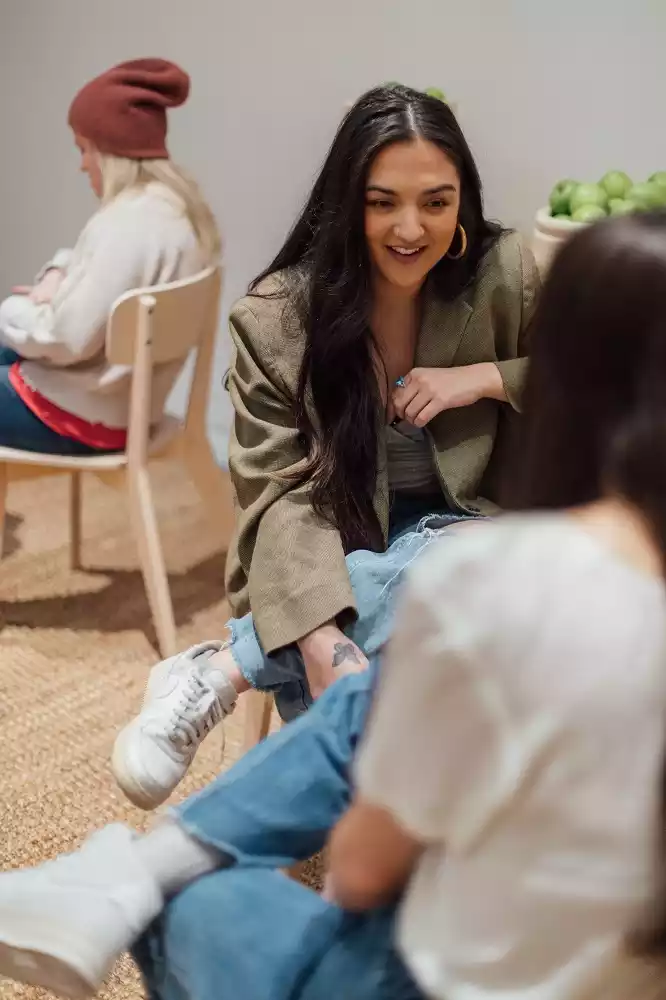
JR: Elizabeth and I have done a lot of this work ourselves over the years. Very early on in our partnership, we started working with a coach who taught us the skills of active listening and communication. We then taught these skills to our organization at SoulCycle. So much of our internal culture was built around teaching people to communicate differently. We think all of that really contributed to people’s happiness in the workplace and ultimately to our customers’ happiness with our product. I mean, 17 years, we’ve been partners. And we’re starting another business together. It’s unusual for two founders, let alone two female founders, to have this kind of a success rate. We spent over three years studying all the things from AA to religion, working with psychiatrists, researchers, and scientists. What we saw was that the common theme was teaching people how to listen. It’s so powerful because in active listening, you’re not responding, you’re not fixing, you’re not thinking in my head “What am I going to say?” You’re just listening. You have to figure out, what would it take for me to really understand someone else’s world, to really understand her perspective, and to suspend my own belief or my own ideas even for just a few minutes to see a situation differently.
ATN: It seems like music is an important aspect of Peoplehood. Was that inspired by SoulCycle?
JR: Music inspires us in whatever we do. I think music was the thing that made SoulCycle. Music is a huge connector for people. Lyrics, beats, sounds, all of it. It creates something very special that bonds people together immediately. In this experience, music is playing in the background which helps people feel less anxious about sharing. Music helps us process our emotions. It helps us feel the highs higher and lows lower, and we definitely felt like music is a real member of the Gather. There’s no doubt that music plays a part as if it were a person sitting right there.
ATN: What was the process for selecting the Guides?
JR: We call our Guides super connectors because they have the ability to hold space for people and connect them in a unique way. When we went out into the world to look for who would be best qualified to lead these gathers, we wanted to be very clear that we are not providing therapy; we are not therapists, nor is that what we say we’re doing. What we are doing is a peer-to-peer structure. We needed some great connectors to lead those. So, our Guides have all held space for other humans, whether they teach dance or they are meditation teachers, experts in breathwork, local organizers, or community leaders. They all hear music very well, which is why I think they’re able to lead breathwork in a way that connects one participant to the next. And then the last and one of the most important things is that they’re great storytellers and they’re actually brave enough to share their stories first. There’s a lot that happens when the Guides go first and share their stories. It really gives the rest of the room permission to feel comfortable to share. And so much happens when the room feels permission and feels comfortable to go ahead.
ATN: What are Peoplehood’s short- and long-term goals?
EC: Our ultimate goal is to see the effect of Peoplehood at people’s dinner tables, workplaces, and neighborhoods, to create a world where people with different opinions can still respect and care for each other. We think there’s a space and hunger for that kind of behavior. If people can turn Peoplehood into a practice, they will see that their lives feel more rich, meaningful, and additive for themselves and the communities they inhabit.
ATN: What do you think the biggest challenge will be with scaling Peoplehood?
JR: We’re creating a new category, and we’ve done it before. I like to say that if we hadn’t done this once before, I would be super excited, but now I know the hard work that goes into it. Before we can even tell people why our product is so great, we have to create an understanding of why people need to take care of their relationships. We are in a loneliness epidemic, and our world is increasingly digital. We no longer make eye contact, even at the dinner table or when we pass someone on the street. We need to help our members create new relationships and strengthen existing ones, which are two very necessary things in the world. We’re fighting with Instagram, Netflix, and all the other things to bring back human connection. The big challenge for us will be creating education around the new category and explaining to people why they need this. I think once people experience it, they will have that aha moment and feel better. When they come back week after week, they will begin to see how much more fulfilled they feel, even when living with the people that have been in their house for years.
I reflected back on the Gather group that I had attended. By the end of the session, I could distinctly feel my group’s energy relax, and could even sense the possibilities of new friendships, real human connections, forming among participants.
Peoplehood just might be the next big thing that we didn’t know we needed.
For more information and to sign up for Peoplehood, please visit the website of the guided group conversation practice, here.


